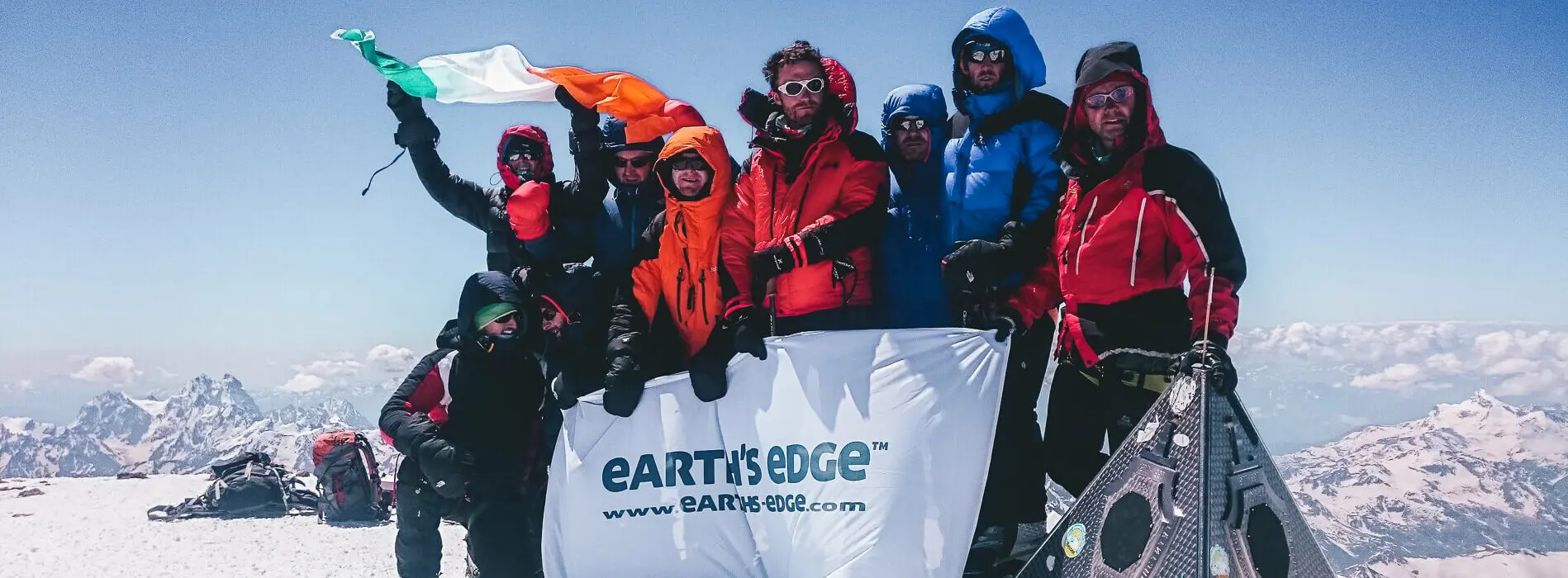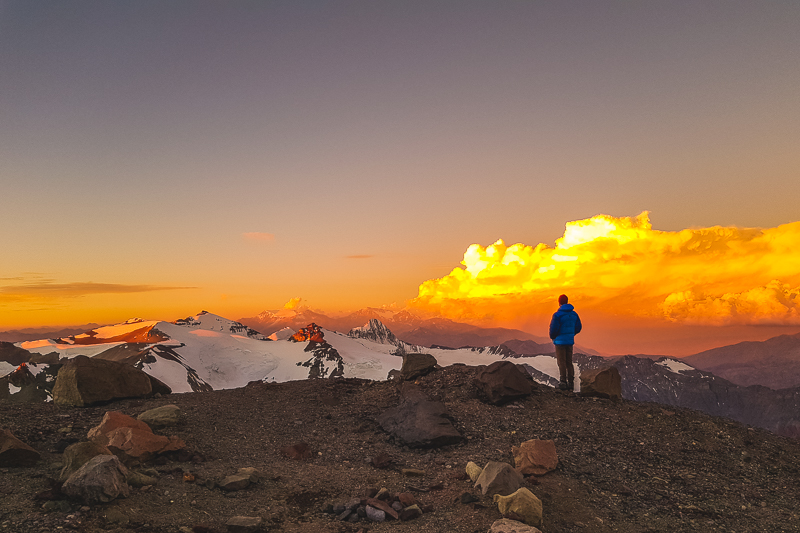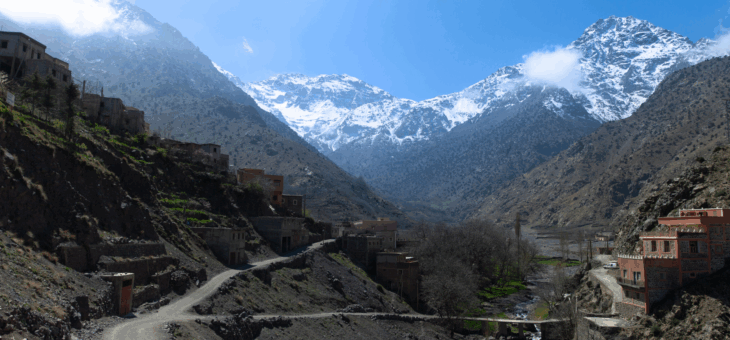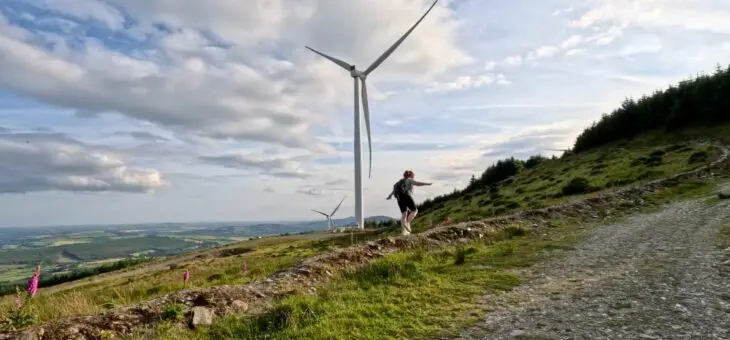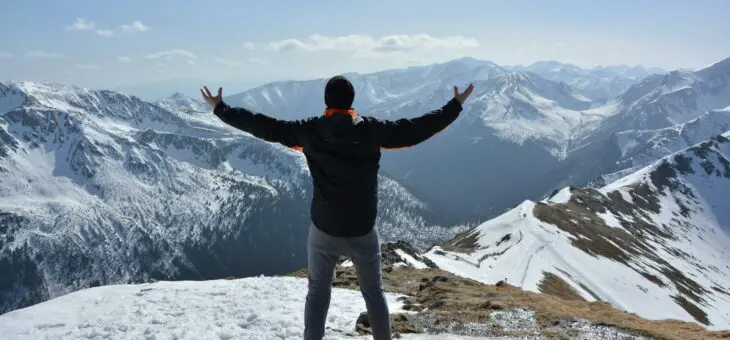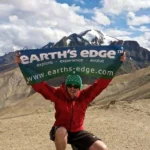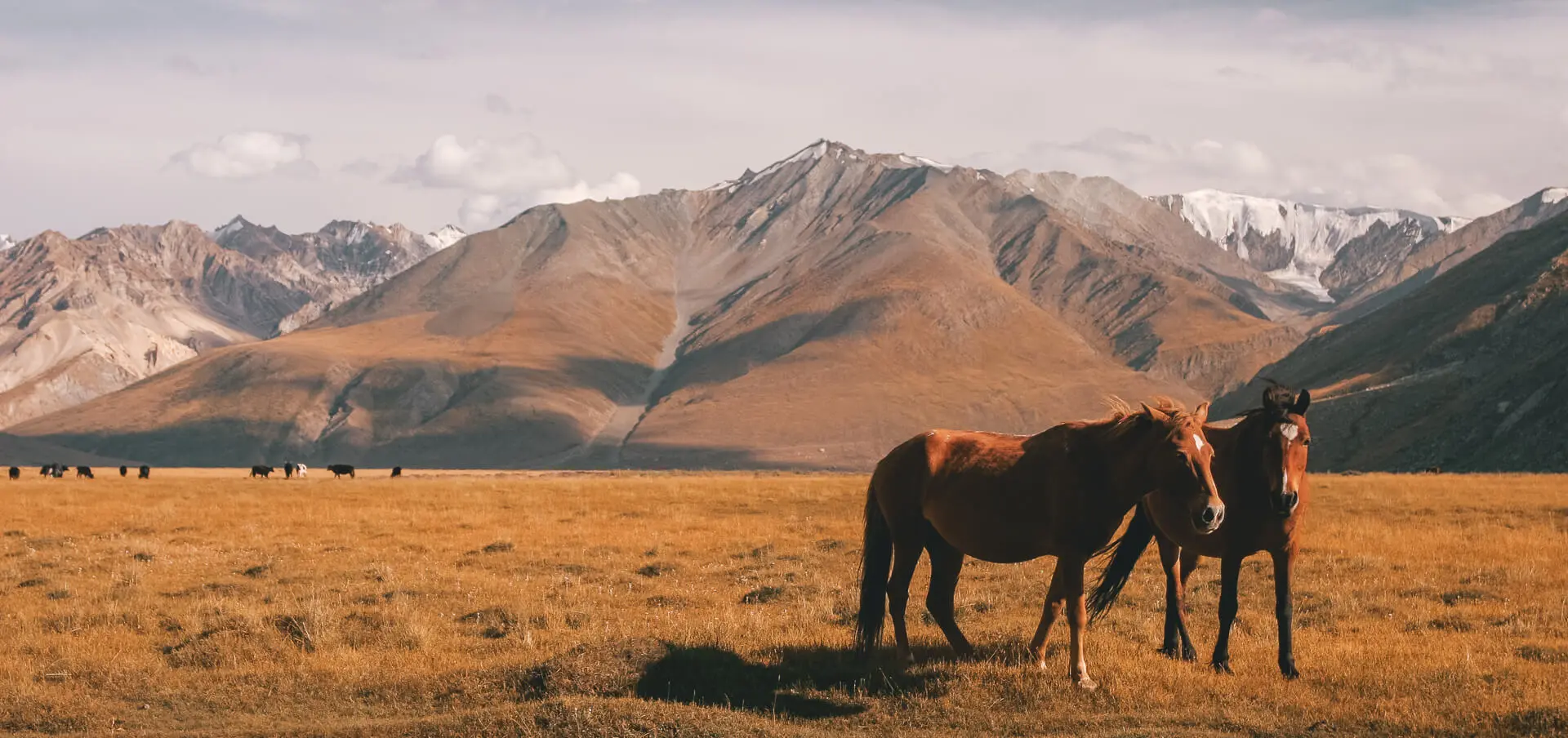Elbrus or Aconcagua – Which is harder?
It’s a common question, both by those who have done one or the other and indeed by some who have done both but which do I think is harder? Elbrus or Aconcagua? One is covered on all sides by glaciers and snow, on the other, gravel or rubble covered trails bring you near the top with little or no snow.
Elbrus sees you use crampons, ice axe, fixed ropes and an array of mountaineering skills, the other, Aconcagua, is “the world’s highest trekking peak” upon which walking poles might be your only tool. Yet it reaches a further 1600m into the sky, just short of 7000m, far too high to be underestimated. So which is harder?
I made it to the summit of both of these mountains within a 6 month period so I will attempt to answer the question. Often our opinion of how difficult a mountain was is coloured by our experiences of the summit day. That is the single day that will burn bright in our memories, but it is not always a true reflection of how hard the mountain really is. I found the summit day on Elbrus more difficult than on Aconcagua. But there are reasons for this. And climbing these mountains takes a lot more than one big effort on summit day.
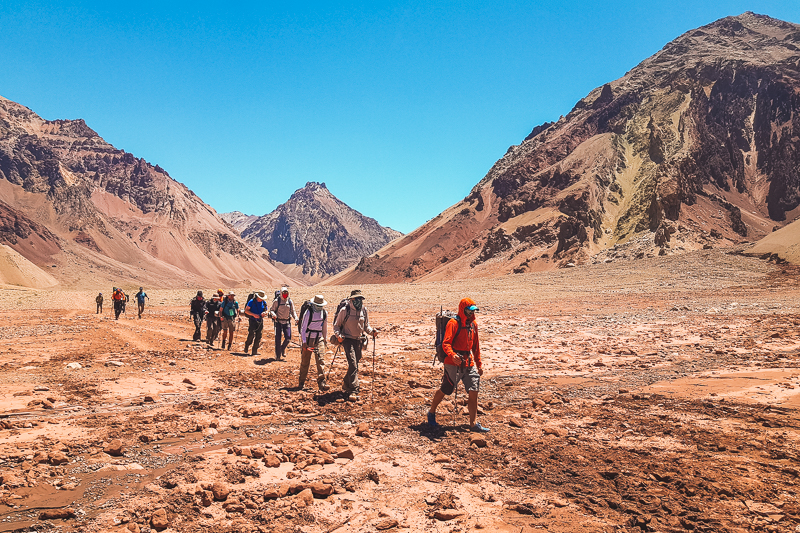
To my mind, the primary difference is that the relatively compact nature of the Elbrus itinerary means that there is less time for acclimatisation. On Aconcagua, it takes many more days to reach the final camp at 6000m, so there is more time to acclimatise prior to the summit attempt. These days of trekking and load carrying can work for or against you.
Preparation is key and taking the time to train and prepare is key. If your mind and body are ready for multiple days of hard work, carrying 15-20kg backpacks, camping, mountain weather, then you will likely prosper and benefit from the week or more spent above 5000m. On Elbrus your all over durability will not be tested to the same extent and to me it’s probably more about pure cardio fitness, a few days of work culminating in a long hard ‘sprint’ to the summit.
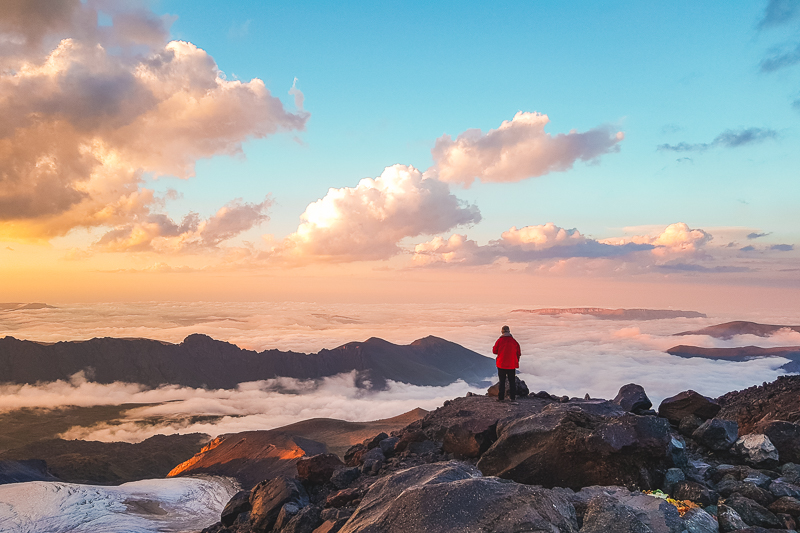
The nature of the Mountains
On another side of the coin is the nature of the mountains. As mentioned above, Elbrus requires more mountaineering skills and equipment which are new to many of those attempting the climb. If it is your first time using high altitude boots, crampons, and ice axes it can be a lot of extra things to think about. If it is a new experience to rope-up to negotiate crevasse fields and steep icy slopes then this can create an extra challenge and an added difficulty.
In the high camp on Elbrus, you will have a bunk, tables and chairs for meals, wifi, and huts to shelter from bad weather. On Aconcagua, you will be camping and this can be an added stress. You might find it more difficult to manage gear, rest, and eat, especially if the weather is poor. Staying organised within your tent is vital and will challenge your spatial skills and your relationship with your tent-mate!
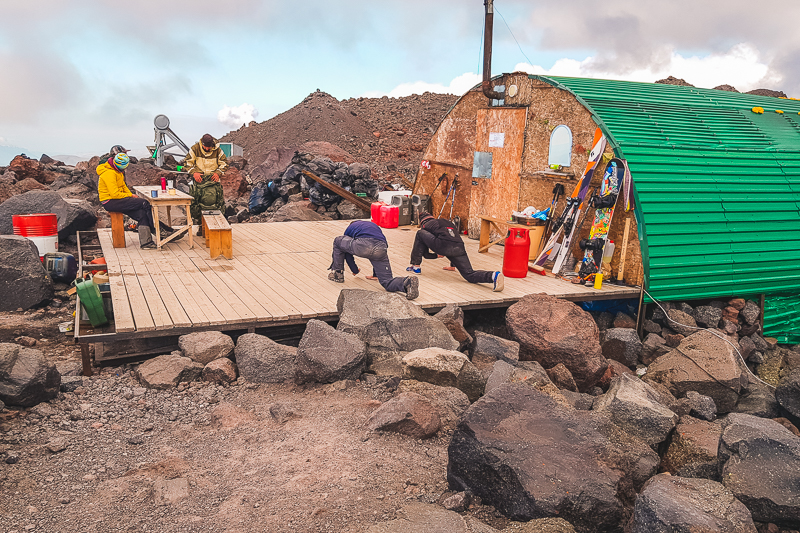
There are many variables to both expeditions, but as to which is harder, I suppose I will have to get off the fence. Even though I found summit day a little easier on Aconcagua, I think that it’s a more difficult mountain, physically and mentally. There are 6 days of carrying 15-20kg packs between 4200m and 6000m on Aconcagua. On Elbrus, there are 2 days of heavy packs, both below 4000m. Aconcagua involves up to 2 weeks of trekking and camping, versus 7-8 nights staying in mountain huts on Elbrus.
The summit day height gain on Elbrus is 1900m, twice that of Aconcagua, and definitely not easy! To use a metaphor, if Elbrus is like a 10k run then Aconcagua is more like a marathon. You have to be fit, well-equipped and well-prepared for both, but any gaps in your training and preparation are much more likely to be discovered and make things a lot more challenging when you are climbing Aconcagua!
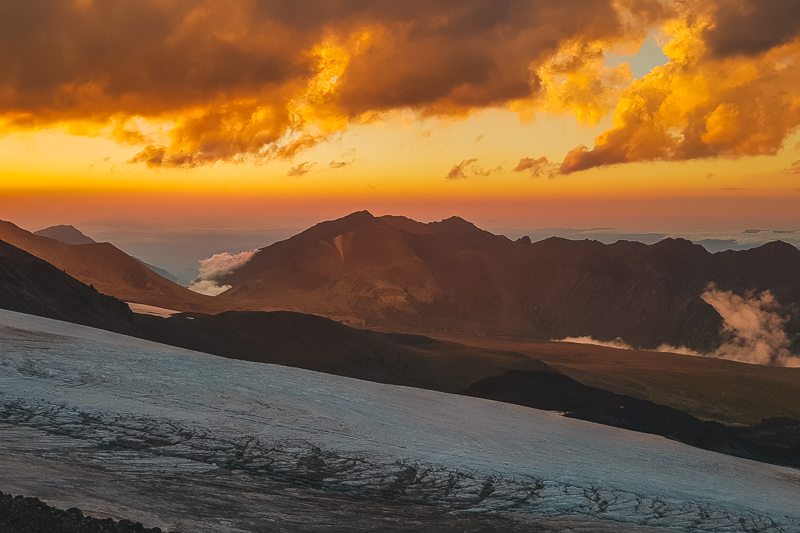
So which is it? Elbrus or Aconcagua?
Having said all of the above it’s important to keep in mind that so often we seek to judge mountains by their height or by their difficulty when perhaps we should judge them not by their qualities but by our own. Until we seek to climb and reflect upon them, mountains are piles of rock, snow and ice.
The quality of our experience comes from within ourselves and the group of people we climb them with. For me, in climbing Elbrus, the modern world is always right there beside you, even from the upper slopes and camps, the lights of cities and towns never seem so far away, wifi and phones a constant distraction.
On Aconcagua, it is a deeper immersion. You feel that you have travelled into an Andean kingdom, a journey measured in weeks rather than days. Whether through the closeness of camping or the lack of connectivity to the outside world, the team becomes closer-knit. Is Aconcagua a greater mountain, or a harder peak? The truthful answer is, for me at least … it depends on you… but is it a greater experience? Most definitely.
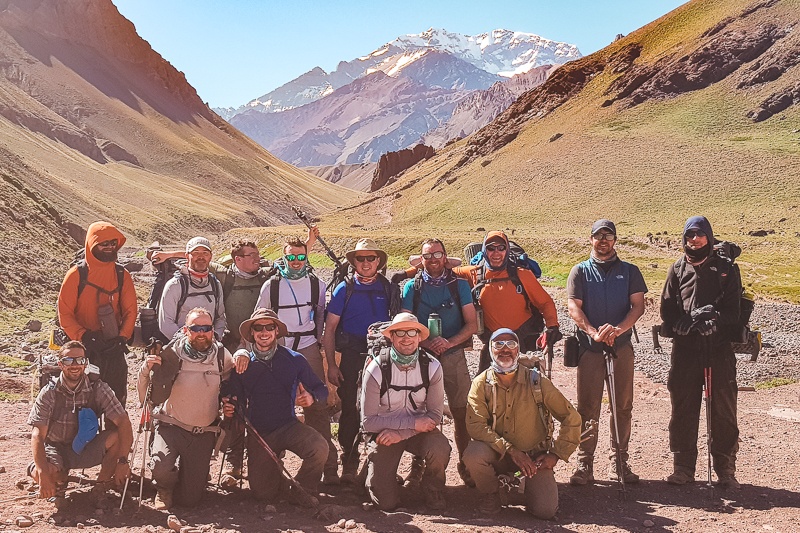
Go on your own Elbrus or Aconcagua Adventure
If you want to see the itinerary for either of these trips, you can either contact us or go straight to the Elbrus Climb page or to the Aconcagua Expedition page.
This article was written by John Healy, who has led Earth’s Edge expeditions for years. He’s a qualified Mountain Instructor (MIA) and mountain biking guide and has been working in the mountains for over 15 years, so you can trust the advice he gave in this article!
